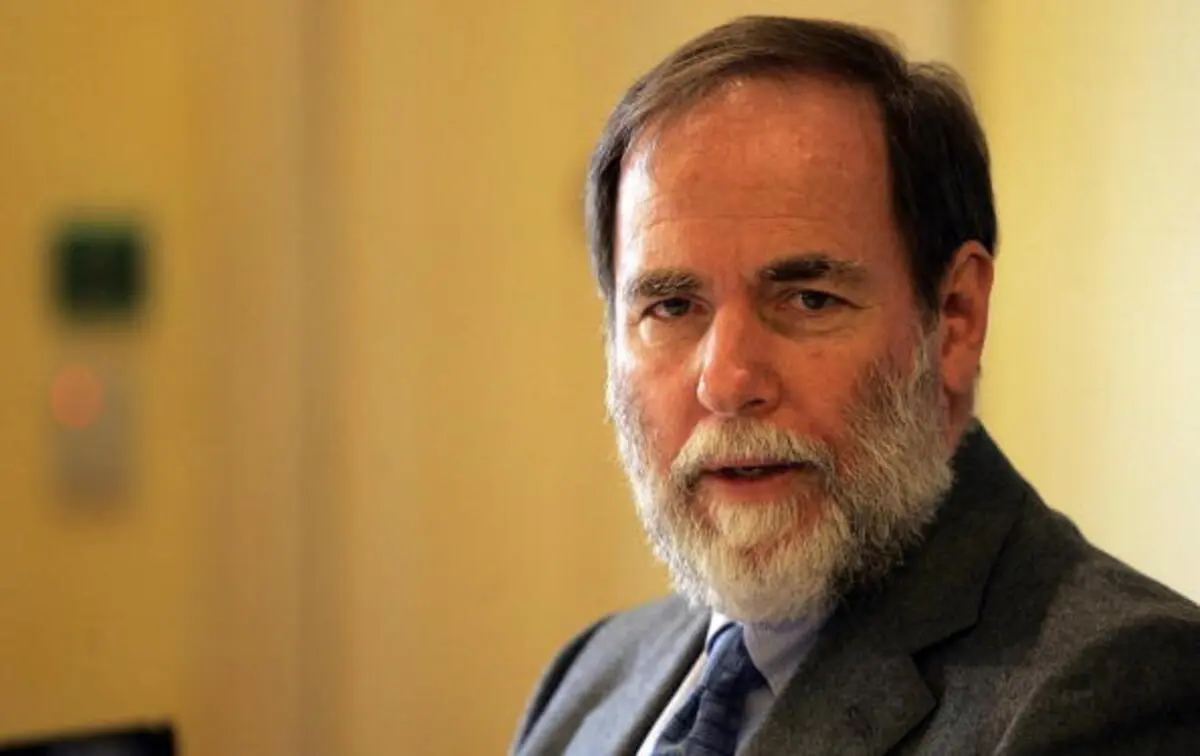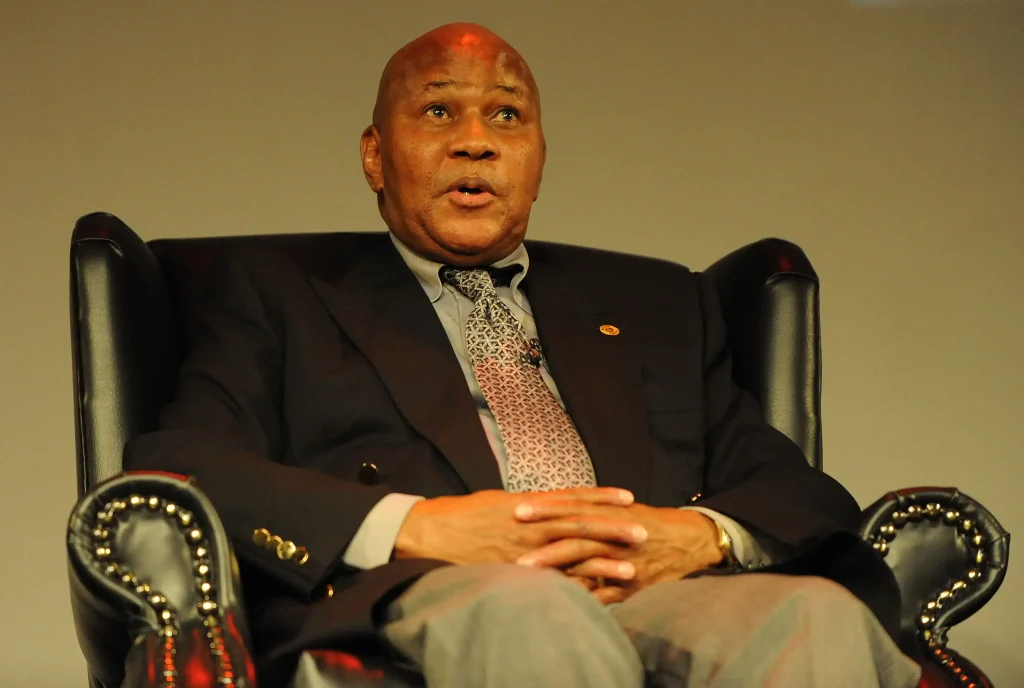Nicky Oppenheimer is a name synonymous with wealth, influence, and a deep-rooted legacy in South Africa’s business community. As the former chairman of De Beers, one of the largest diamond companies in the world, and the heir to the Oppenheimer family’s fortune, Nicky has shaped not only the diamond industry but also played a significant role in global business, philanthropy, and conservation. Though he has stepped back from day-to-day operations in recent years, his impact continues to resonate both in South Africa and internationally.
Quick Facts
| Full Name | Nicholas Oppenheimer |
|---|---|
| Born | June 8, 1945 |
| Nationality | South African |
| Occupation | Businessman, Former Chairman of De Beers, Investor |
| Net Worth | Estimated $8 billion (as of 2023) |
| Family | Son of Harry Oppenheimer, grandson of Sir Ernest Oppenheimer |
| Spouse | Ursula Oppenheimer |
| Children | Jonathan Oppenheimer (son) |
| Education | Harrow School, University of Oxford (BA) |
| Known For | Leadership of De Beers, Oppenheimer Family Legacy |
| Philanthropy | Founder of the Oppenheimer Generations Foundation, supporter of conservation efforts |
| Not active on social media |
Early Life and Education
Nicky Oppenheimer was born on June 8, 1945, in Johannesburg, South Africa, into one of the country’s most prominent families. His grandfather, Sir Ernest Oppenheimer, was a German-born financier who made his fortune through the De Beers diamond company, which dominated the global diamond market for much of the 20th century. Sir Ernest, who eventually became a British baronet, laid the groundwork for the Oppenheimer family’s wealth and influence.
Nicky’s father, Harry Oppenheimer, continued the family legacy, steering De Beers through challenging political and economic landscapes during the apartheid era in South Africa. Growing up in this environment, Nicky was exposed to high-level business discussions and leadership from an early age.
He was educated at Harrow School, one of the United Kingdom’s most prestigious institutions, before attending the University of Oxford, where he earned a degree in History. His education abroad, combined with his upbringing, gave him a global perspective on business and a deep understanding of the responsibilities that came with leading the Oppenheimer family empire.
Joining De Beers and the Rise to Leadership
In the 1970s, Nicky Oppenheimer returned to South Africa and began working at De Beers, the company that had been the foundation of the Oppenheimer family’s wealth. Although his family had owned the company for generations, Nicky’s early years at De Beers weren’t just about inheriting power—they were about proving his mettle in the highly competitive and often volatile diamond industry.
In 1984, Nicky was appointed to the board of directors of De Beers, and by 1998, he succeeded his father as the chairman of the company. Under his leadership, De Beers continued to dominate the diamond market, controlling roughly 40% of global diamond production at its peak.
During his tenure, Nicky was also instrumental in transforming De Beers into a more modern, transparent company, especially after the De Beers Consolidated Mines and its diamond trading arm, The Diamond Trading Company (DTC), faced mounting challenges, including criticism over the ethics of the diamond industry and the advent of synthetic diamonds. He worked to improve corporate governance and environmental sustainability, positioning the company as a leader not only in the diamond industry but also in responsible business practices.
However, despite his successes, Nicky Oppenheimer’s leadership at De Beers was not without its challenges. The company had to navigate a complex and changing global market, including the rise of new competitors such as Alrosa from Russia, and the political pressures of operating in South Africa during and after the end of apartheid.
The Sale of De Beers and Diversification
In 2012, Nicky Oppenheimer made the monumental decision to sell the Oppenheimer family’s stake in De Beers to the global mining giant Anglo American for $5.1 billion. This marked the end of the Oppenheimer family’s direct control over the diamond business, which had spanned more than 80 years.
The sale signified a new phase in Nicky Oppenheimer’s career, one where he focused on diversification and pursuing other investment opportunities. After selling his shares in De Beers, he became a private investor, focusing on sectors such as energy, agriculture, and financial services through his investment company, EOH.
Nicky also maintained his interest in the mining industry and natural resources. He and his family retained significant holdings in several companies, including Caronte Group, an investment firm focused on global business opportunities.
Philanthropy and Conservation
One of the most defining aspects of Nicky Oppenheimer’s post-De Beers career has been his commitment to philanthropy and conservation. As a member of South Africa’s elite, Nicky has used his wealth and influence to fund various initiatives aimed at improving the lives of South Africans, protecting natural resources, and promoting wildlife conservation.
In 2008, he founded the Oppenheimer Generations Foundation, which focuses on education, conservation, and socioeconomic development. The foundation works in South Africa and beyond, promoting projects that aim to protect biodiversity, support underprivileged communities, and nurture the next generation of leaders.
The Oppenheimer family has long been involved in conservation efforts in Southern Africa. Nicky has personally invested in protecting wildlife and preserving the region’s biodiversity. He has supported several initiatives aimed at combatting poaching, preserving endangered species like the African elephant, and fostering sustainable tourism.
The Tswalu Kalahari Reserve, one of the largest private game reserves in South Africa, is another key part of the Oppenheimer family’s legacy. Located in the Kalahari Desert, it is dedicated to the conservation of wildlife and is one of the country’s most significant ecological projects.
Legacy and Influence
Nicky Oppenheimer’s legacy is defined by his leadership of De Beers, his diversification into other business ventures, and his significant contributions to philanthropy and conservation. His family’s wealth, once derived largely from diamonds, has been expanded through investments in other industries, cementing the Oppenheimer name as one of South Africa’s most powerful and influential.
Despite his status as one of the richest men in South Africa, Nicky has maintained a relatively low profile compared to other billionaires in the country. He prefers to let his work speak for itself, whether in business, conservation, or philanthropy.
As of today, Nicky’s son, Jonathan Oppenheimer, is involved in the family’s business and philanthropic ventures, ensuring that the Oppenheimer family legacy continues for future generations.
Final Thoughts
Nicky Oppenheimer’s life and career have been marked by a blend of traditional wealth, modern business strategies, and a deep sense of responsibility toward both people and the environment. His leadership of De Beers cemented his place in South African business history, and his ongoing commitment to philanthropy and conservation has positioned him as a key figure in efforts to safeguard Southern Africa’s natural heritage.
As a private investor and philanthropist, Nicky continues to influence various sectors of the economy and global business. His legacy is not only about wealth but about using that wealth to drive positive change in society—whether it’s improving the lives of South Africans, promoting sustainable practices, or preserving the diverse ecosystems of Africa.
The story of Nicky Oppenheimer is a testament to how business success, when coupled with a sense of social responsibility, can leave a lasting impact on both local and global communities.





